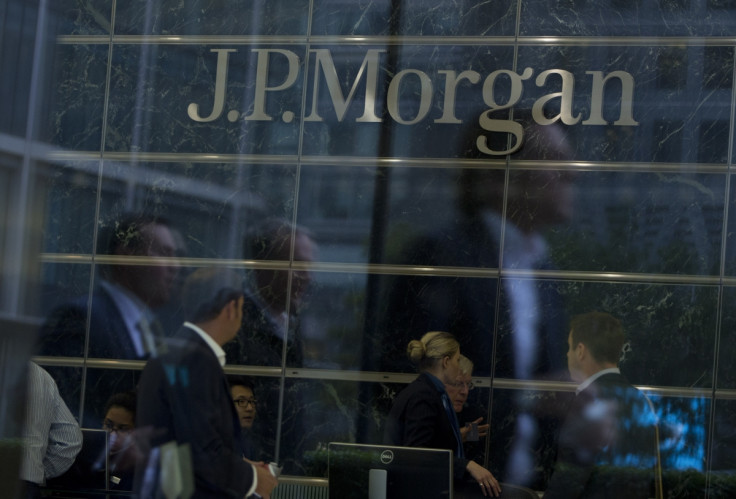Barbarians at the Gate: JP Morgan and the Bitcoin-Driven Payment Revolution

While big players in the field of payment systems like Visa and PayPal have been trying to cozy up to the concept of crypocurrency, reports have resurfaced about US bank JP Morgan filing patent applications for a fabled bitcoin alternative.
JP Morgan declined to comment on its patent plans.
The application in question, pertaining to assignee JP Morgan Chase N.A., describes an invention that includes a "method and system for processing internet payments using the electronic funds transfer network".
Defenders of bitcoin have been outraged at the stealth tactics of JP Morgan, which has at its disposal funds equivalent to hundreds of times bitcoin's total capitalisation.
The fact that the JP Morgan application, filed on 5 August 2013, has been repeatedly rejected is viewed as proof the bank was hard at work trying to duplicate any useful aspects of bitcoin it could appropriate.
What JP Morgan is proposing is a way to process payments without the need for account details to be handed over. There is a degree of commonality with peer-to-peer payments like bitcoin, but the people who should really be concerned are other payment systems, based on what you could call the legacy capabilities of credit or debit cards.
JP Morgan's "web cash" patent comprises a digital wallet, an Internet Pay Anyone account, and a Virtual Private Lockbox. Also included is an account reporter, similar to the publicly available and permanent ledger of bitcoin transactions, blockchain.
It allows users to push an electronic funds transfer credit from their Internet Pay Anyone account to a merchant's account, without having to provide their own sensitive account information.
JP Morgan is eyeing a whole new marketplace emerging for "low dollar, high volume, real-time payments with payment surety for both consumers and producers", it said.
The evolution away from a traditional "pull" transactions model, in which a merchant must receive the consumer's account number and in some cases PIN number, is nothing new; it's where PayPal's wallet has held dominance for well over a decade. But now companies like Amazon are quietly creeping up.
Perhaps the alarm bells are ringing because banks deal directly in currencies, so any whiff of a P2P transaction network and they appear to be competing with bitcoin. In any case, JP Morgan is certainly not the only big bank looking at developing alternative payment systems in tandem with developing cryptocurrencies. Recently Russia's Sberbank said it intends to form its own virtual currency with the help of Russian search engine Yandex – "Yandex Money".
Sberbank chief executive Herman Graf said the future belongs to virtual currencies. He said that Yandex Money is not yet a currency but is a step in the right direction.
Interestingly, the recent sanctions on Russia, which meant Visa and MasterCard were unable to process certain transactions, prompted Graf to announce that a national payment system can be launched in Russia in six months, based on the universal electronic card technology already created in the country.
It could be argued that sanctions, designed to weaken Russia's fragmented financial payments sector have actually served to strengthen it, but that's another story.
It's accepted that credit cards and the legacy banking system in use today were never meant for use over the internet: bitcoin has numbered its days.
The history of the corporate universe is debased and somewhat irrelevant compared to cataclysmic events in the real world, but it does have a fast and unforgiving turnaround. And the technological revolution means upheavals are happening at an ever-increasing clip.
Within this changeable context, PayPal's payment architecture seems to be hamstrung. John Donahoe, the chief executive of eBay, which is also the owner of PayPal, recently announced "bitcoin is on our radar". These words could turn out to be an epitaph for a technology which now begins its inevitable decline. Meanwhile, the barbarians are massing at the gate.
© Copyright IBTimes 2025. All rights reserved.






















